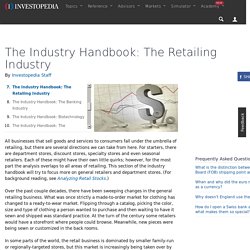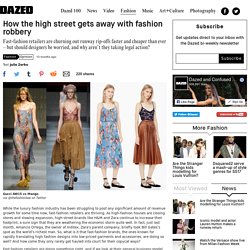

About Us. About Us. You know Topshop as the style setter and star of your wardrobe, but over the years we’ve become so much more!

From the charities we sponsor to our work at London Fashion Week, our love of everything fashion knows no bounds! We started out life way back in 1964. Since those humble beginnings in the basement of a department store we’ve grown up and now have over 300 stores in the UK alone! We ship to more than 100 countries and our eclectic British style is known all over the world. Our Oxford Circus flagship is a mecca for cool girls, whether they’re holidaying in London or living in the capital, and we’ve spread the love across the pond with flagships in Chicago and New York! Over the years we’ve built a strong bond with industry insiders and in 2002 we joined forces with NEWGEN, a scheme which allows us to foster new design talent and provide a global platform for the scene’s brightest new stars.
Find us on Facebook Follow us on Twitter Follow us on Instagram Style it up on Tumblr. The Industry Handbook: The Retailing Industry. All businesses that sell goods and services to consumers fall under the umbrella of retailing, but there are several directions we can take from here.

For starters, there are department stores, discount stores, specialty stores and even seasonal retailers. Each of these might have their own little quirks; however, for the most part the analysis overlaps to all areas of retailing. This section of the industry handbook will try to focus more on general retailers and department stores. (For background reading, see Analyzing Retail Stocks.) Over the past couple decades, there have been sweeping changes in the general retailing business. In some parts of the world, the retail business is dominated by smaller family-run or regionally-targeted stores, but this market is increasingly being taken over by billion-dollar multinational conglomerates like Wal-Mart and Sears. Hard - These types of goods include appliances, electronics, furniture, sporting goods, etc. Porter's 5 Forces Analysis. Why the relationship between department stores and luxury brands is changing.
There's no denying it: Selling at department stores is still a must for many accessible luxury brands.

Historically, these brands and retailers have profited from department stores being the go-to destinations for a unique assortment of luxury goods and personalized services, such as style consultants and makeup tutorials. Given the sheer amount of foot traffic that department stores pull in, stocking inventory at these locations can help introduce brands to new shoppers. But modern advances in retail — from e-commerce to off-price chains — have changed the long-standing relationship between luxury brands and department stores. As more brands look for growth opportunities outside of their traditional distribution channels — such as launching their own websites and expanding the reach of their retail stores — this could cause tension in what was largely a congenial and symbiotic relationship. How luxury brands are growing But this week, Michael Kors announced a shift in its strategy. Login to Mintel Reports - Mintel Group Ltd.
Login to Mintel Reports - Mintel Group Ltd. Login to Mintel Reports - Mintel Group Ltd. Login to Mintel Reports - Mintel Group Ltd. How the high street gets away with fashion robbery. While the luxury fashion industry has been struggling to post any significant amount of revenue growth for some time now, fast-fashion retailers are thriving.

As high-fashion houses are closing stores and slowing expansion, high-street brands like H&M and Zara continue to increase their footprint, a sure sign that they are weathering the economic storm quite well. In fact, just last month, Amancio Ortega, the owner of Inditex, Zara’s parent company, briefly took Bill Gates’s spot as the world’s richest man. So, what is it that fast-fashion brands, the ones known for rapidly translating high fashion designs into low-priced garments and accessories, are doing so well? And how come they only rarely get hauled into court for their copycat ways? Fast fashion retailers are doing something right, and if we look at their general business model (and forget the negative side effects, like exploitative labour), it is innovative. British Fashion: High End vs High Street - Who is the most sociable?